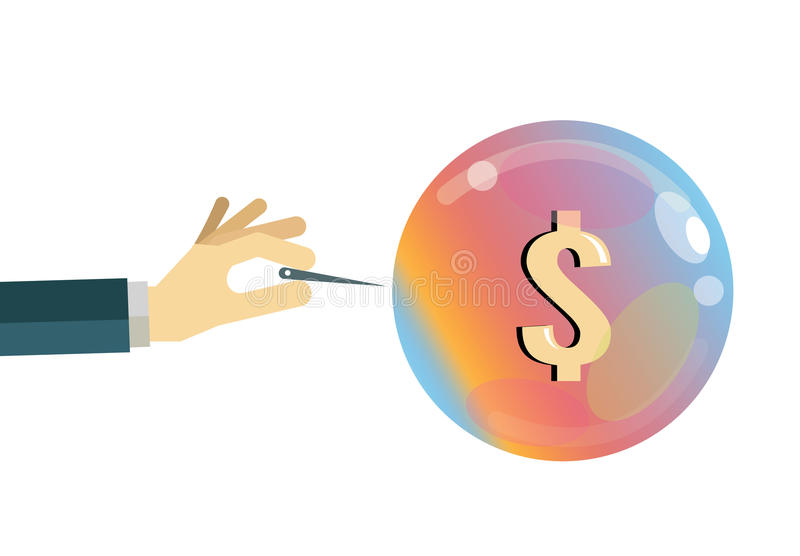
The government is a good choice when it comes down to treasuries. You can buy short-term treasuries that mature within a year, or you can invest in long-term bonds. Corporate bonds and municipal bonds are also options. Each has its benefits and drawbacks. Find out more about them all by reading on. In this article, we'll discuss each one in turn. This investment option can help you achieve the financial freedom you're seeking.
Treasuries short-term
Treasury yields are governed by the law of supply/demand. Many investors invest less in risky assets when the stock market plunges around the world. These investors think that U.S. Treasury bond are the best option. As demand has increased for treasuries, yields have fallen. This means that until stock markets stabilize around world, the investment will continue falling.

Treasuries for intermediate-term purposes
While the term "Intermediate-term Treasury" is often associated with riskier securities, it can also have its advantages. Investors can get both capital preservation and current income from intermediate-term Treasury investments. These bonds have a 5- to 10-year maturity and are priced to match ultra-low cost counterparts. These bonds are attractive for investors who want to trade short-term and long term investments with moderate risk.
Treasuries for the long-term
A different investment product might be the best way to achieve the Council's financial goals. These investments require careful analysis, and may require capital changes. A business case should be developed to support any long-term Treasury investment. This plan should be included in the annual investment strategy. Once the business plan is complete, Council members can decide to invest in an alternative investment product. Alternatively, it could use an investment strategy for income generation from existing investments.
Municipal bonds
Many municipal bonds are tax-exempt. This means that interest is exempt from tax at both the federal and state levels. Bond investors typically seek steady income payments, and may be more conservative than stock investors, who are focused on building wealth over time. Their returns can be increased by the tax-exempt status that municipal bonds enjoy. Municipal bonds may appeal to higher-tax investors. Municipal bonds are a good option for those who want to save their money.

Interest rate risk
Although interest rates influence the price for bonds, there is no guarantee that all Treasury securities will be affected by them. Treasury securities that have longer maturities are more at risk. Bond prices fall when interest rates rise and vice versa. Investors need to be aware of the potential impact on their bond fund investments if interest rates rise. Here are some common tools to evaluate interest rate risk.
FAQ
How does inflation affect stock markets?
Inflation can affect the stock market because investors have to pay more dollars each year for goods or services. As prices rise, stocks fall. This is why it's important to buy shares at a discount.
What are the benefits of stock ownership?
Stocks are less volatile than bonds. When a company goes bankrupt, the value of its shares will fall dramatically.
But, shares will increase if the company grows.
In order to raise capital, companies usually issue new shares. This allows investors to purchase additional shares in the company.
Companies use debt finance to borrow money. This gives them access to cheap credit, which enables them to grow faster.
If a company makes a great product, people will buy it. Stock prices rise with increased demand.
As long as the company continues to produce products that people want, then the stock price should continue to increase.
Why are marketable securities Important?
An investment company exists to generate income for investors. It does this by investing its assets into various financial instruments like stocks, bonds, or other securities. These securities are attractive to investors because of their unique characteristics. They are considered safe because they are backed 100% by the issuer's faith and credit, they pay dividends or interest, offer growth potential, or they have tax advantages.
What security is considered "marketable" is the most important characteristic. This is how easy the security can trade on the stock exchange. You cannot buy and sell securities that aren't marketable freely. Instead, you must have them purchased through a broker who charges a commission.
Marketable securities include government and corporate bonds, preferred stocks, common stocks, convertible debentures, unit trusts, real estate investment trusts, money market funds, and exchange-traded funds.
These securities are a source of higher profits for investment companies than shares or equities.
What is the main difference between the stock exchange and the securities marketplace?
The securities market is the whole group of companies that are listed on any exchange for trading shares. This includes stocks, options, futures, and other financial instruments. Stock markets are generally divided into two main categories: primary market and secondary. Stock markets that are primary include large exchanges like the NYSE and NASDAQ. Secondary stock markets let investors trade privately and are smaller than the NYSE (New York Stock Exchange). These include OTC Bulletin Board Over-the-Counter and Pink Sheets as well as the Nasdaq smallCap Market.
Stock markets are important for their ability to allow individuals to purchase and sell shares of businesses. The value of shares is determined by their trading price. New shares are issued to the public when a company goes public. Dividends are received by investors who purchase newly issued shares. Dividends refer to payments made by corporations for shareholders.
In addition to providing a place for buyers and sellers, stock markets also serve as a tool for corporate governance. Shareholders elect boards of directors that oversee management. They ensure managers adhere to ethical business practices. If the board is unable to fulfill its duties, the government could replace it.
What is security at the stock market and what does it mean?
Security is an asset that generates income for its owner. Shares in companies is the most common form of security.
There are many types of securities that a company can issue, such as common stocks, preferred stocks and bonds.
The earnings per share (EPS), and the dividends paid by the company determine the value of a share.
When you buy a share, you own part of the business and have a claim on future profits. If the company pays you a dividend, it will pay you money.
Your shares can be sold at any time.
Who can trade in stock markets?
The answer is everyone. Not all people are created equal. Some have greater skills and knowledge than others. They should be rewarded.
Other factors also play a role in whether or not someone is successful at trading stocks. You won't be able make any decisions based upon financial reports if you don’t know how to read them.
This is why you should learn how to read reports. Each number must be understood. You must also be able to correctly interpret the numbers.
You'll see patterns and trends in your data if you do this. This will assist you in deciding when to buy or sell shares.
This could lead to you becoming wealthy if you're fortunate enough.
What is the working of the stock market?
By buying shares of stock, you're purchasing ownership rights in a part of the company. A shareholder has certain rights. He/she can vote on major policies and resolutions. The company can be sued for damages. He/she can also sue the firm for breach of contract.
A company can't issue more shares than the total assets and liabilities it has. This is called capital adequacy.
Companies with high capital adequacy rates are considered safe. Companies with low capital adequacy ratios are considered risky investments.
Statistics
- Even if you find talent for trading stocks, allocating more than 10% of your portfolio to an individual stock can expose your savings to too much volatility. (nerdwallet.com)
- Ratchet down that 10% if you don't yet have a healthy emergency fund and 10% to 15% of your income funneled into a retirement savings account. (nerdwallet.com)
- The S&P 500 has grown about 10.5% per year since its establishment in the 1920s. (investopedia.com)
- US resident who opens a new IBKR Pro individual or joint account receives a 0.25% rate reduction on margin loans. (nerdwallet.com)
External Links
How To
How to invest in the stock market online
The stock market is one way you can make money investing in stocks. You can do this in many ways, including through mutual funds, ETFs, hedge funds and exchange-traded funds (ETFs). Your risk tolerance, financial goals and knowledge of the markets will determine which investment strategy is best.
Understanding the market is key to success in the stock market. This includes understanding the different investment options, their risks and the potential benefits. Once you have a clear understanding of what you want from your investment portfolio you can begin to look at the best type of investment for you.
There are three major types of investments: fixed income, equity, and alternative. Equity refers to ownership shares in companies. Fixed income refers to debt instruments such as bonds and treasury notes. Alternatives include things like commodities, currencies, real estate, private equity, and venture capital. Each option has its pros and cons so you can decide which one suits you best.
There are two main strategies that you can use once you have decided what type of investment you want. One strategy is "buy & hold". You purchase some of the security, but you don’t sell it until you die. Diversification, on the other hand, involves diversifying your portfolio by buying securities of different classes. If you purchased 10% of Apple or Microsoft, and General Motors respectively, you could diversify your portfolio into three different industries. Multiple investments give you more exposure in different areas of the economy. It helps protect against losses in one sector because you still own something else in another sector.
Risk management is another crucial factor in selecting an investment. Risk management will allow you to manage volatility in the portfolio. You could choose a low risk fund if you're willing to take on only 1% of the risk. On the other hand, if you were willing to accept a 5% risk, you could choose a higher-risk fund.
Learning how to manage your money is the final step towards becoming a successful investor. A plan is essential to managing your money. A good plan should include your short-term, medium and long-term goals. Retirement planning is also included. Then you need to stick to that plan! Keep your eyes on the big picture and don't let the market fluctuations keep you from sticking to it. Stick to your plan and watch your wealth grow.